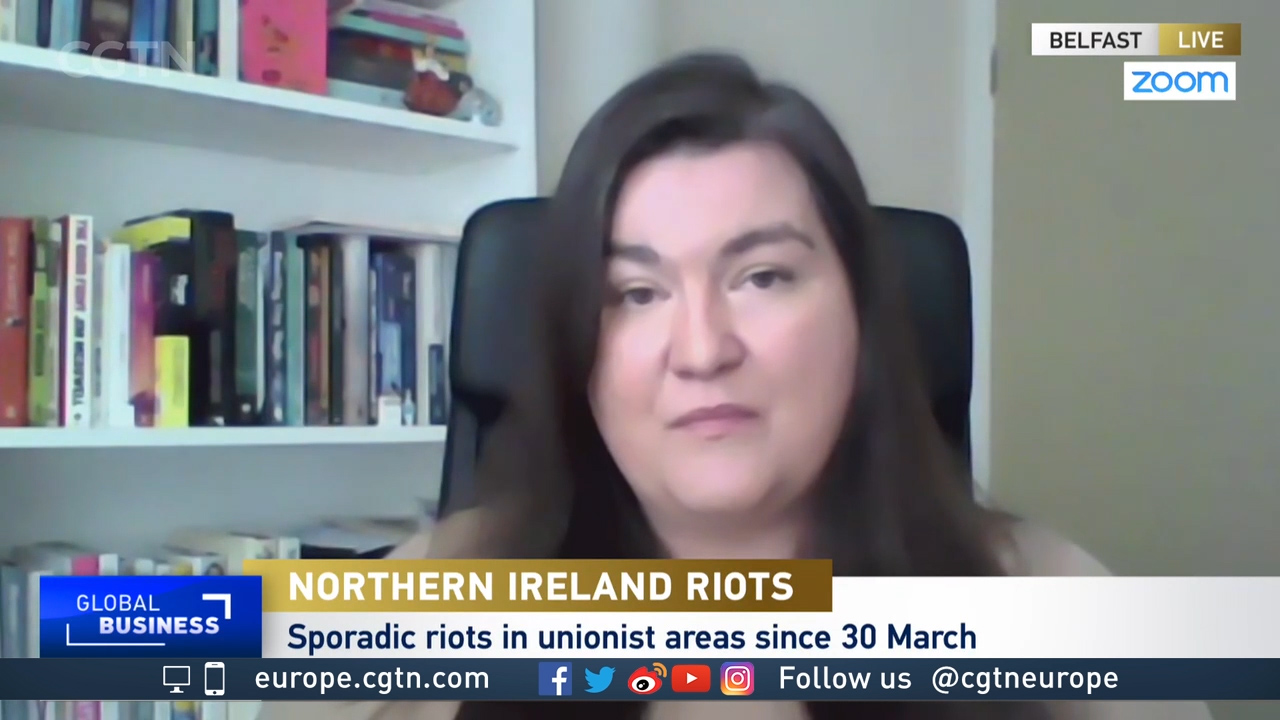03:39

Northern Ireland's First Minister Arlene Foster is facing a rebellion from within her Democratic Unionist Party (DUP) after a majority of members signed a letter seeking a confidence vote in her leadership.
It is understood that around 80 percent of DUP representatives at the Northern Ireland assembly and at least half of its members of parliament in London have signed the letter, requesting the party's chairman call a leadership contest.
"It's a very significant move at the moment," Northern Ireland journalist Amanda Ferguson told CGTN's Global Business show, "It's become apparent that there's moves to try and oust her from her position."
Foster, who was elected as the DUP's first female leader in 2015, said stories on leadership "come up from time to time."
The DUP leader has been under pressure recently over the aftermath of Brexit which has caused friction within the party and among some of its voters.
Loyalists in Northern Ireland are upset at Foster's handling of the Northern Ireland protocol, the part of the Brexit Withdrawal Agreement that imposes checks on goods coming from Great Britain, effectively creating a border in the Irish Sea.
"This [the Northern Ireland Protocol] has caused a great deal of distress among those who would identify as British Unionists within Northern Ireland. They feel betrayed by UK government, they feel betrayed by the prime minister, and they're uneasy about the future," Ferguson said.
The fallout of Brexit has been one of the catalysts for ongoing riots that began on March 30 in some unionist areas around the country. Nearly 90 officers have been injured in some of the worst street violence seen in years.
"It's not very good when images of street violence, buses on fire, and petrol bombs thrown at police are being beamed all over the world," Ferguson said, "There were a range of factors that played into that. One of them was anger around the Brexit protocol. We also have criminal and paramilitary elements involved. And also, there are – what we refer to as 'recreational rioting' – perhaps a little bit of lockdown fatigue amongst young people who view it as something exciting to be a part of."
Integrated education is often touted as one potential solution to healing the social rifts within Northern Ireland.
At present around 7 percent of students are educated in integrated schools. The overwhelming majority go to schools segregated along Catholic and Protestant lines.
"It's viewed that if children were educated together, it may make social cohesion better," Ferguson said, "There's some people who live in 'single identity communities' where perhaps they never meet or interact with people from a different background until they go to university or enter the workplace. So, certainly, it will be one of the tools that will help our society, but it's not the only one that will need work on."

